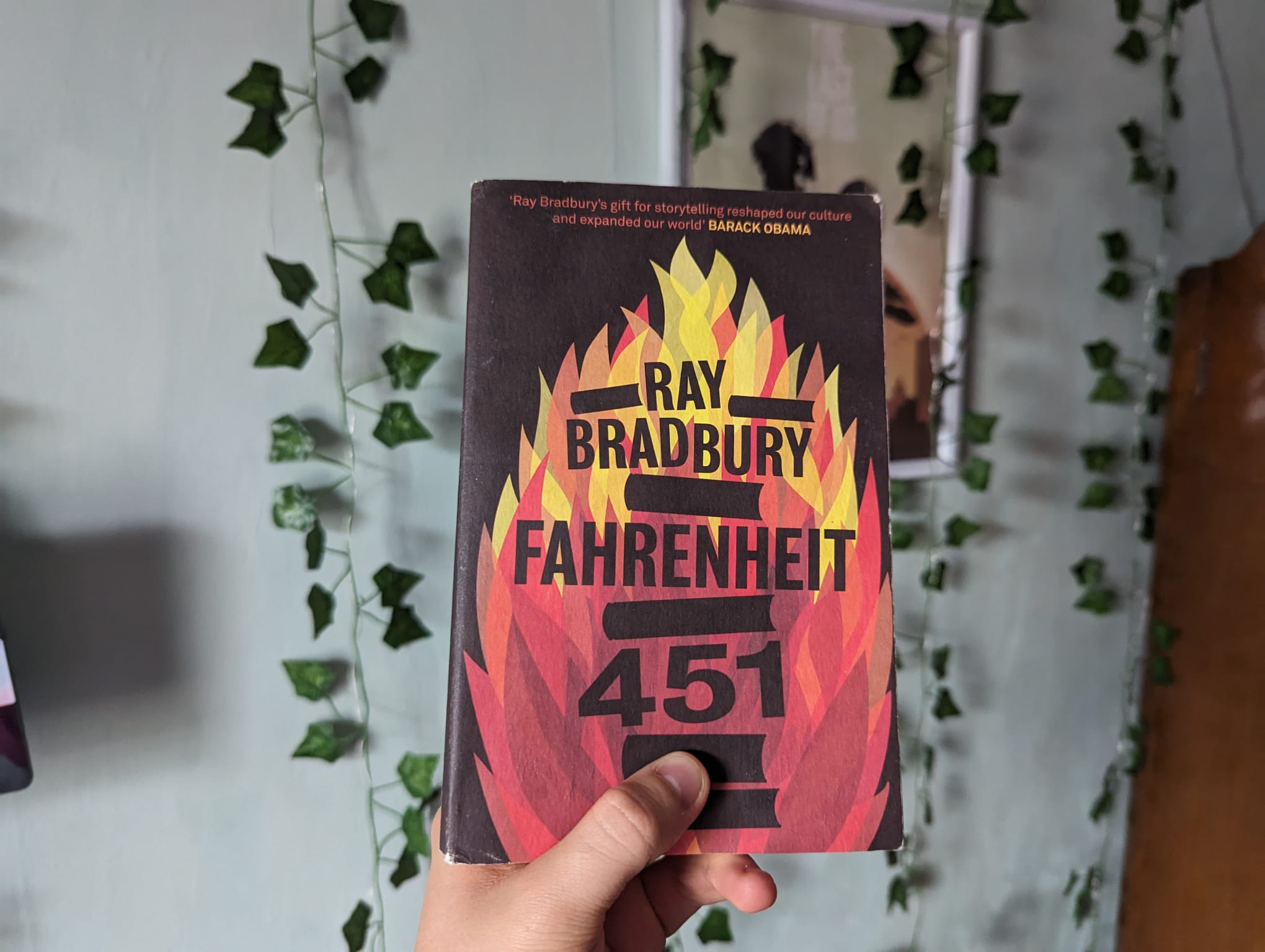Flames rise up in your mind as the firefighters douse it with kerosene as you read this.
In this future, firefighters, using the symbol of a salamander, are dispatched as a show of force to those who dare to read the contradictions and seeds planted by books.
Why would you ignore ‘the family’ projected on all the walls in the parlour and endanger yourself to read a scruffy and outlawed book?
Fahrenheit 451 is written in such a way that it remains timelessly relevant and applicable to contemporary discussions, from the queer book banning in the USA to the banning and burning of books and documents in Afghanistan by the Taliban.
Along with applying the approach to censorship to current times, Fahrenheit 451, like many books of this nature, depicts a potential future for the world, from the role reversal of public officials to the method that keeps all literature alive: human story books.
Born out of necessity in attempt to remove any and all evidence of book ownership, people become the books through memorising sections, chapters and whole books. In the process, they give the stories they contain and their interpretations another body.
Some editions of the book come with a matchbook urging the reader to embody the book and then burn it. What would you do?
By Max Clinch, former SGO Project Officer
 Sustainability
Sustainability Bethany Climpson
Bethany Climpson 1067
1067


